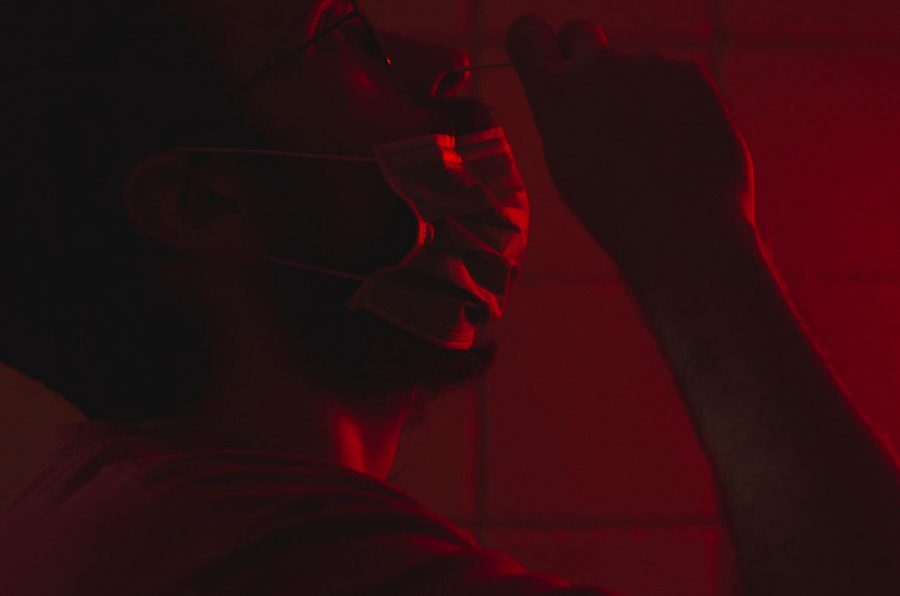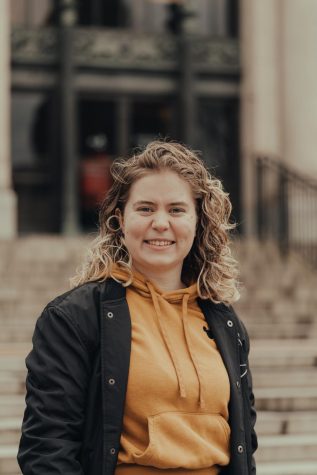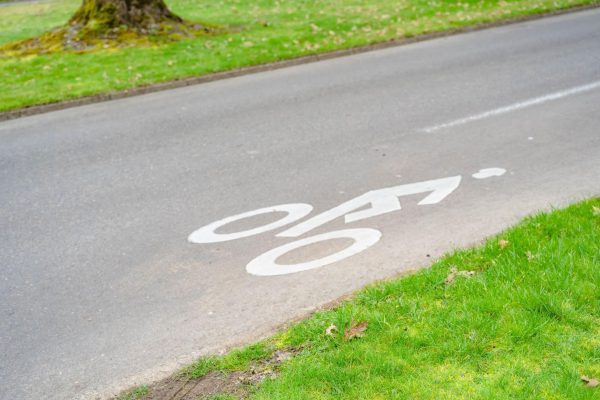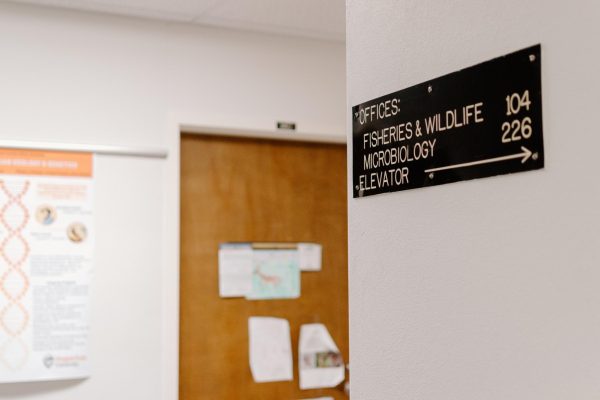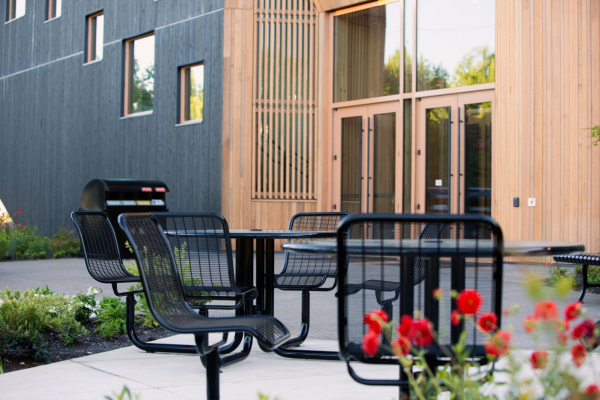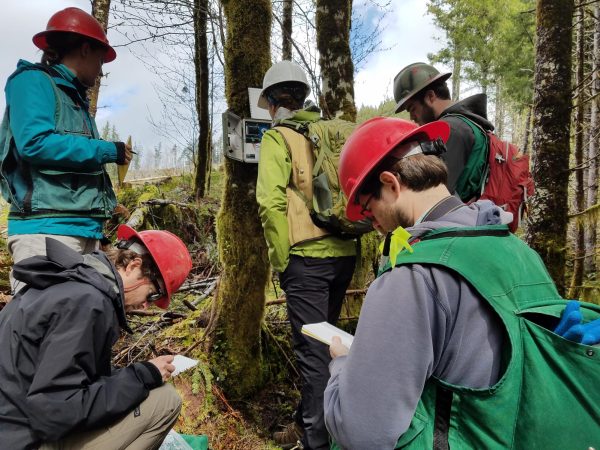COVID-19 testing information for Corvallis residents
October 13, 2020
Clarification: The article previously stated that the PCR test is 100% accurate, we have since clarified that the test is nearly 100% accurate depending on other factors including how long the infection has been present.
COVID-19 testing is still limited, but Corvallis, Ore. residents who think they may have the virus can get tested for it at any medical practice, including Samaritan Health, Nova Health or Rite-Aid.
As flu season approaches, it’s increasingly important that Corvallis residents get tested if they believe themselves to have COVID-19, though knowing the differences between the flu and COVID-19 can be tricky.
Symptoms of COVID-19 that Corvallis residents should be extra careful to watch for signs of are respiratory struggle, cough, high fever, shortness of breath and loss of smell or taste, which is often the first symptom. If residents have any of these symptoms, they should be tested immediately.
“The recommendation is that people get tested if they have any indication that they’ve been in contact with COVID-19,” said Charlie Fautin, deputy for Benton County Health Department. “Or, if they have any symptoms. If in doubt, call the doctor’s office, but don’t just walk in, and then they may recommend a test.”
However, while most doctor’s offices in Corvallis offer testing, Fautin said that many of them may instead send residents to Samaritan Health, which has a site for drive-thru testing. There is no cost to the patient for testing at Samaritan Health, however, a physician’s order is required first.
“Patients can schedule an appointment with their primary provider, or do a ‘Coronavirus concerns’ e-visit through the MyChart patient portal,” said Adam Brady, MD, infectious disease specialist and chair of the Samaritan Coronavirus Task Force. “This is required to keep the patient’s medical record up to date, as well as testing data that must be reported to Benton County and the state.”
At this site, Samaritan Health uses a nasopharyngeal swab test, which is inserted into both upper nostrils and similar to what many other testing sites do. They also partake in several practices to ensure the safety of their staff who are involved in testing.
“Our staff wear gowns, gloves, surgical masks and eye protection,” Brady said. “They are using portable respirator units known as PAPRs at drive-thru sites for their comfort and so they do not need to change their personal protective equipment as often.”
Many other places in Corvallis offer testing as well, such as Student Health Services on the Oregon State University campus for students, the Corvallis Clinic, which also offers drive-thru testing, and the Corvallis Rite Aid.
“Currently Rite Aid in Corvallis offers free testing,” Jeffrey Mull, medical director of OSU Student Health Services, said. “No order from a clinician is needed, [and] information can be obtained on their website. Results may take up to a week.”
Nova Health is another option for testing as well, with nearby practices in Junction City, Harrisburg, Springfield, Eugene, and Coburg. If a patient is asymptomatic, Nova Health will follow the same procedures as other providers by doing an on-site nasal swab that only takes 15 minutes to result once on the machine. However, if a patient is exhibiting symptoms, they have a separate procedure.
Nova Health has two forms of testing that are performed on symptomatic patients; a nasopharyngeal polymerase chain reaction and a mid-nasal antigen test, according to Marc Schnapper, urgent care medical director at Nova Health.
According to a study published by the Center for Disease and Control, the antigen tests allows rapid results that are about 80% accurate, whereas the PCR test is nearly 100% accurate, but takes 2-3 days for results. According to the Harvard Health Blog, the rate of accuracy depends on how long an individual has been infected.
“Currently all testing and the visit is 100% covered by insurance because of the Cares Act,” Schnapper said. “Because testing is being paid for by insurers, the system is set-up such that only providers can order a diagnostic test.”
Due to the nature of COVID-19 testing, receiving a positive or negative test result can take up to several days, but until residents can know for sure that they don’t have the virus, they are encouraged to self-isolate. If they are confirmed to have the virus, on the other hand, they are encouraged to continue self-isolating.
“Until testing can be provided and results are available, it is important to assume your illness might be COVID-19 and self-isolate,” Mull said. “Self-isolation means staying at home. During self-isolation, you’ll need to stay away from family members or roommates and pets… Avoid sharing dishes, glasses, bedding and other household items… Self-isolation should be done for at least 10 days from onset of symptoms. Isolation can be discontinued once symptoms have significantly improved and the infected individual has no fever for 24 hours without taking fever reducing medications.”
Whenever someone in Benton County does test positive for the coronavirus, this information is relayed to Benton County Public Health Department, which then does contact tracing to find who else may have been infected.
“Public health gets a report of every positive COVID-19 case [and] they then do contact tracing to find who this positive case may have been in contact with the previous few days,” Fautin explained.
In an extensive interview with any people who may have been in contact with a positive case, the health department offers resources and recommends testing if needed.
While COVID-19 is a continuing issue, and probably will be throughout this year’s sick season, Benton County and the City of Corvallis are taking steps to slow the spread of the virus.
“It’s also more important this year to get a flu vaccination,” Brady said. “COVID-19 and influenza can cause very similar symptoms and it is important to protect yourself and the community against influenza to help avoid illnesses that could be confused with COVID-19.”












































































































